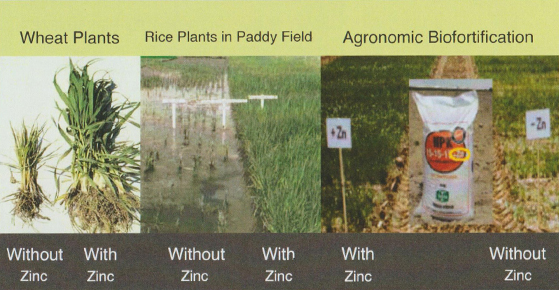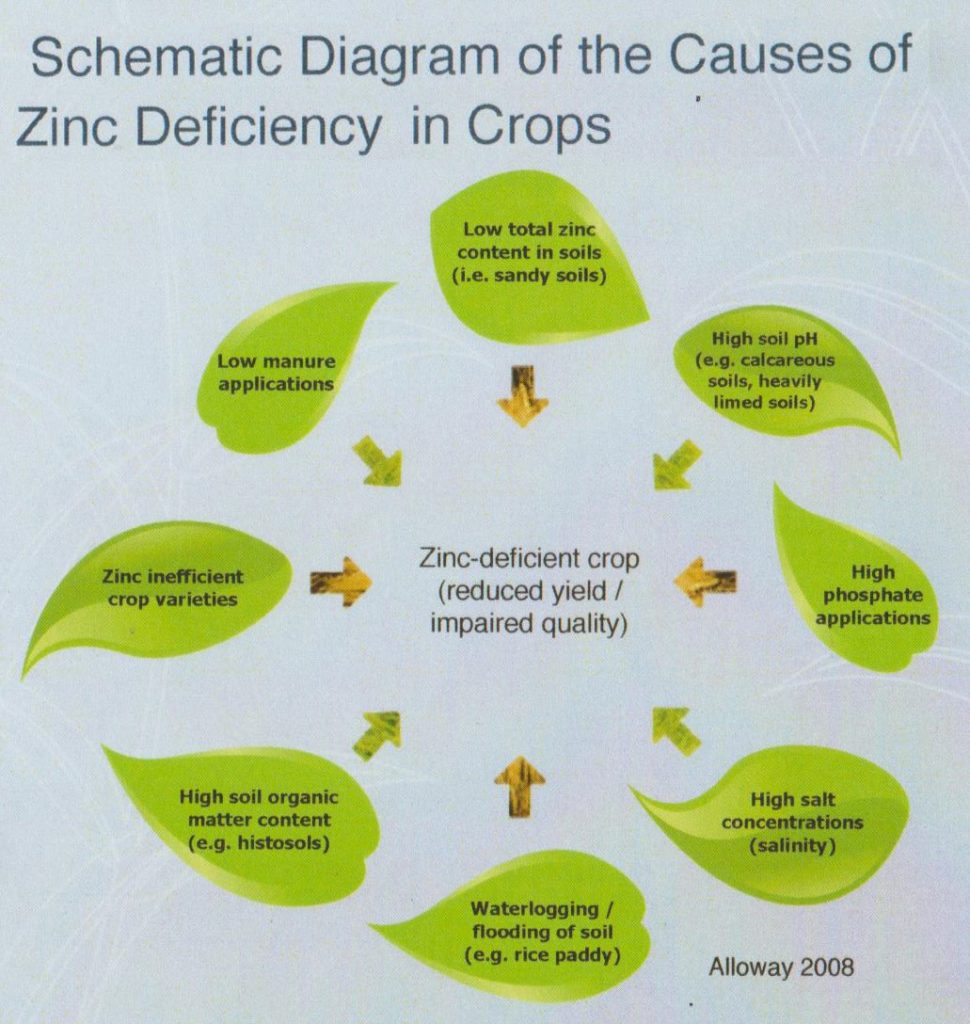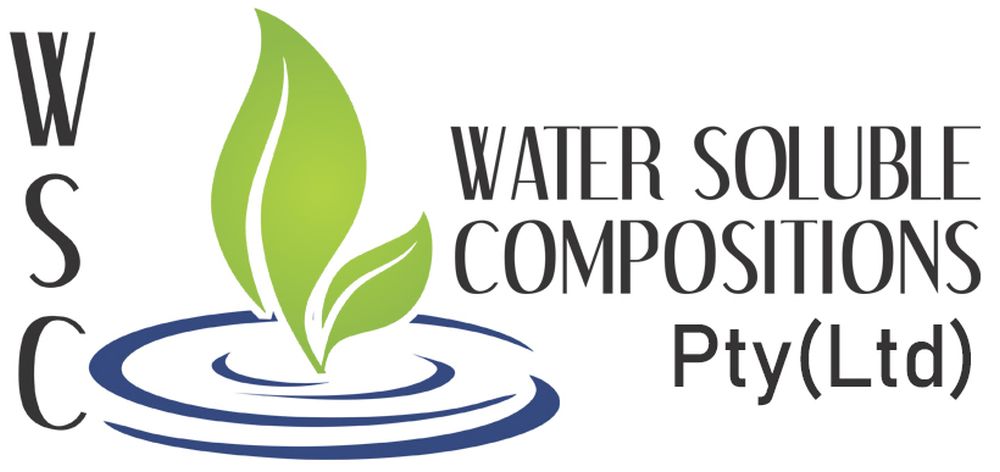The root cause for Zinc deficiency in crops…
Today, it is estimated that 50% of agricultural soils devoted to cereal cultivation are potentially zinc deficient. Over two-thirds of the rice grown worldwide is produced on flooded paddy soils, which generally contain very low amounts of plant-available zinc. Wheat is typically grown on alkaline, calcareous soils with low organic matter in the semi-arid (rainfed) regions of the world. These soils and climatic conditions tend to make zinc less available for uptake and use by plants. Under zinc-deficient soil conditions, plants show a high susceptibility to environmental stress factors such as drought, heat stress, and pathogenic infections, which stimulate development of chlorosis and necrosis on the leaves and cause stunted growth.
The high prevalence of zinc-deficient soils in major agricultural zones severely limits agricultural productivity. Zinc fertilizers can therefore, make a significant contribution towards goals of higher crop yields in a sustainable and environmentally responsible manner. Simultaneously, zinc fertilizers can enhance grain zinc concentration and thus contribute greatly to the daily zinc intake of the human population.
Zinc deficiency in crops is a global issue, reducing crop yields and nutritional status. One- third of the world’s population is at risk for zinc deficiency, ranging from 4% to 73% in different countries.
Zinc deficiency in food crops reduces yield capacity and lowers the nutritional value of crops. Zinc is one of the eight trace elements that plants need for normal growth and reproduction. Nearly 10% of all proteins in biological systems need zinc for their functions and structure. Plants require zinc in small bur critical concentrations for several key factors , including membrane function, photosynthesis, protein synthesis, phytohormone synthesis (eg.auxine), seedling vigor, sugar formation, and defence against disease and abiotic stress factors (eg.drought). Even when a plants macronutrients of nitrogen, phosphorous, potassium and water are met, zinc deficiency will prevent plants from reaching their full potential.
Zinc content in major staple foods such as wheat, rice, maize and beans is of particular concern. For many people in developing nations, cereals are the principal source of calories, proteins and minerals. Since these are the regions with widespread zinc-deficient soils, these are also the regions with widespread zinc deficiency in humans. There is a direct and vital link between zinc deficiency in crops and human health.
Applying zinc fertilizers to soil offers a simple and highly effective solution to zinc deficiency problems in plants and to increase zinc concentration of foods. WSC has done the trails and we have a single application solution by coating NPK/MAP/SEED with 100% watersoluble micronutrients that our plants need to row and our bodies need to function.


